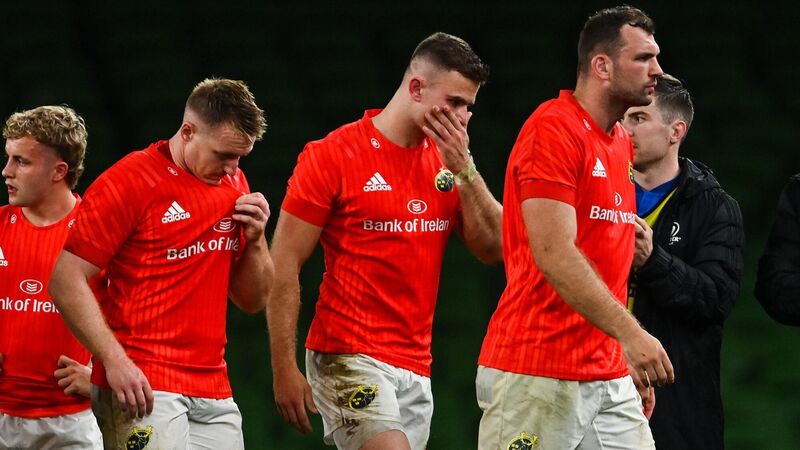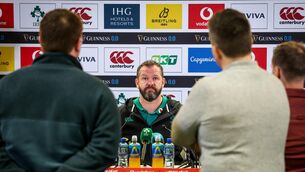Donal Lenihan: Thinking outside the Boks - How Munster's mindset needs to change

Munster players, from left, Craig Casey, Rory Scannell, Shane Daly, and Tadhg Beirne react after their defeat to Leinster at the Aviva Stadium. Photo by Ramsey Cardy/Sportsfile
Every champion team has one or two key players whose mere presence lift those around them.
Even New Zealand, despite being jam-packed with quality performers, is reliant on the inspirational figures that separate them from the rest. For years, it was Dan Carter and Richie McCaw. When Carter was ruled out of the knockout phase of the 2011 World Cup on home soil, a team brimming with confidence to that point suddenly became vulnerable.










